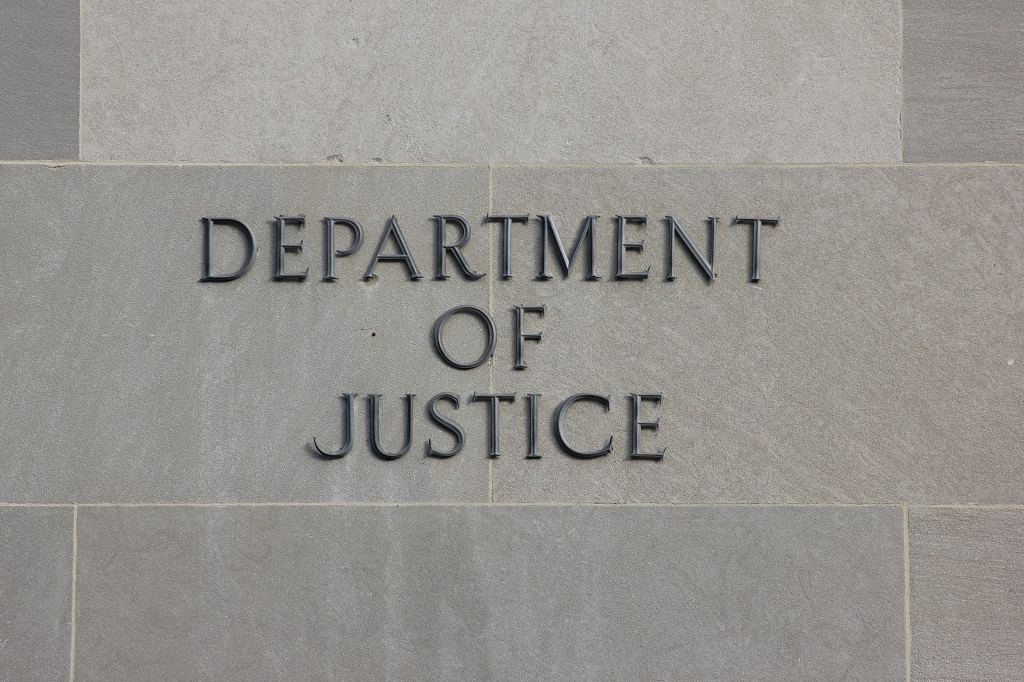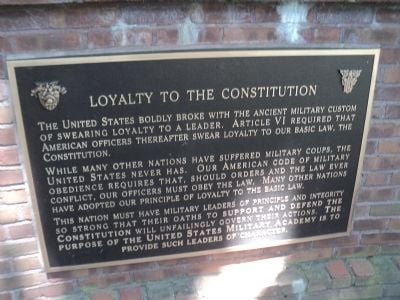The Special Counsel’s Constitutional Analysis: The Clear Statement Rule
Special Counsel Robert Mueller’s report spans more than 400 pages. In a 12-page section near the end of the thick volume, Mueller tackles a critical question: Can the federal obstruction of justice statute apply to the president? The first element of the report’s analysis focuses on the so-called clear statement rule.

Special Counsel Robert Mueller’s report spans more than 400 pages. In a 12-page section near the end of the thick volume, Mueller tackles a critical question: Can the federal obstruction of justice statute apply to the president? The first element of the report’s analysis focuses on the so-called clear statement rule. In 1995, the Office of Legal Counsel (OLC) suggested that the federal bribery statute can be applied to the president, even though there is not a “clear statement” in the statute that the president is subject to the law. Mueller relies on this opinion to conclude that the obstruction of justice statute can also apply to the president—even in the absence of a clear statement. But Mueller’s attempt to analogize bribery and obstruction is not supported by OLC precedent.
Mueller’s legal analysis turns, in large part, on a single footnote in a 1995 OLC opinion. In 1995, President Clinton nominated William Fletcher to the U.S. Court of Appeals for the Ninth Circuit. At the time, Fletcher’s mother was also a judge on that court. OLC reasoned that the federal nepotism statute should not apply to presidential appointments, in part, because of the so-called clear statement rule. Cases like Franklin v. Massachusetts teach that, generally, statutes should not be applied to the president unless the statute clearly applies. Regarding Fletcher’s nomination, OLC found that “a serious question would be raised were” the nepotism statute “read to apply to presidential appointments to the federal judiciary.” That is, this reading of the nepotism statute meant that Congress would be imposing additional limitations on the president’s appointment power beyond those prescribed in the Constitution. However, OLC qualified this analysis. The opinion drew a distinction in Footnote 11:
The clear statement principle we have identified does not apply with respect to a statute that raises no separation of powers questions were it to be applied to the President. So, for instance, the Department of Justice has construed the federal bribery statute as applying to the President even though it does not expressly name the President. Memorandum for Laurence H. Silberman, Deputy Attorney General, from Robert G. Dixon, Jr., Assistant Attorney General, Office of Legal Counsel, Re: Whether Governor Rockefeller, If Appointed as Vice President, Is Required to Execute a Blind Trust in Order to Avoid Possible Violation o f 18 U.S.C. §208 at 2 (Aug. 20, 1974). 18 U.S.C §201 establishes that “[w]hoever, being a public official” receives a bribe commits a criminal offense. Id. §201(c)(l)(B). “Public official” is defined as a “ Member of Congress, Delegate, or Resident Commissioner, either before or after such official has qualified, or an officer or employee or person acting for or on behalf of the United States . . . in any official function . . . . * ’ Id. §201(a)(l). Application of §201 raises no separation of powers question, let alone a serious one. [1] The Constitution confers no power in the President to receive bribes; [2] in fact, it specifically forbids any increase in the President’s compensation for his service while he is in office, which is what a bribe would function to do. See U.S. Const, art. II, § 1, cl. 7. [3] Moreover, the Constitution expressly authorizes Congress to impeach the President for, inter alia, bribery. Id. §4. The Constitution further provides that any party impeached and convicted may “nevertheless be liable and subject to Indictment, Trial, Judgment and Punishment, according to Law.” Id. art. I, §3. We also opined that the Federal Advisory Committee Act applies to the Department of Justice Journal Board, because this application raises no separation o f powers concerns. See Application o f Federal Advisory Committee Act to Editorial Board of Department of Justice Journal, 14 Op. O.L.C. 53 (1990). [Boldface added]
OLC flagged the federal bribery statute in this footnote because it is very much the outlier. Why? Applying this law to the president, OLC wrote, “raises no separation of powers question, let alone a serious one.” OLC identified three reasons. First, “the Constitution confers no power in the President to receive bribes.” Second, the Constitution “specifically forbids any increase in the President’s compensation for his service while he is in office, which is what a bribe would function to do.” Article II prohibits the president from receiving any other “compensation” while in office; that is, a bribe. Third, the Constitution enumerates bribery as a ground for impeachment.
OLC’s analysis is premised on the fact that the president has the power to nominate federal judges. Applying the nepotism statute where there is an express grant of power would raise “serious” questions about the separation of powers. Therefore, the clear statement rule was appropriate for the nepotism statute. Likewise, the president has the power to supervise and remove federal officers. Applying the nepotism statute to a range of activities that could be deemed obstruction—including the supervision and removal of subordinates—would likewise raise “serious” questions about the separation of powers. This reasoning suggests the clear statement rule would also be appropriate for the obstruction statute. These two concepts stand in stark contrast with bribery: The president has no power to accept bribes.
How does Mueller bridge the gap from bribery to obstruction? He writes:
Under OLC’s analysis, Congress can permissibly criminalize certain obstructive conduct by the President, such as suborning perjury, intimidating witnesses, or fabricating evidence, because those prohibitions raise no separation-of-powers questions. See Application of 28 U.S.C. §458 to Presidential Appointments of Federal Judges, 19 Op. O.L.C. at 357 n.ll. The Constitution does not authorize the President to engage in such conduct, and those actions would transgress the President’s duty to “take Care that the Laws be faithfully executed.” U.S. Const. Art II, §§ 3. In view of those clearly permissible applications of the obstruction statutes to the President, Franklin’s holding that the President is entirely excluded from a statute absent a clear statement would not apply in this context.
But Footnote 11 made no reference to “perjury,” “intimidating witnesses” or “fabricating evidence.” Here, Mueller is drawing a significant inference from OLC. But OLC’s analysis does not so easily extend beyond the unique contexts of bribery. Indeed, Footnote 11 turns almost entirely on the unique status of bribery in our constitutional order.
The Constitution expressly enumerates bribery as a ground for impeachment. The Framers unambiguously identified it as a ground for removal. The greater power to remove the president for bribery includes the lesser power to criminalize bribery by the sitting president (with a prosecution after he is out of office). The same cannot be said for the more malleable obstruction offense, which can apply to a wide range of conduct within the president’s sphere of authority. Indeed, Congress did not criminalize obstruction until four decades after the framing.
Likewise, the Constitution expressly prohibits the acceptance of additional compensation that could constitute a bribe. There is no similar express prohibition concerning the obstruction of justice. Indeed, the president’s supervisory role over investigations within his own department—including the ability to fire subordinates—suggests the absence of any prohibition. The Take Care Clause obligates the president to “take Care that the Laws be faithfully executed” by his subordinates. (Seth Barrett Tillman notes that the clause is framed in the passive voice; the president does not execute, but supervises those who execute.) If the subordinates are not faithfully executing the law, as the president sees it, then the president has a constitutional imperative to intervene. The Constitution imposes a negative limit on the president accepting bribes but does not have a negative limit on supervising prosecutions. To the contrary, there is a positive commandment.
Mueller suggests that the Take Care Clause provides a possible limitation: That is, if the president interferes in a lawful investigation, he is not faithfully executing the law. This argument elides the important threshold question. If the president decides that his subordinates are not faithfully executing the law, then he has the power, and indeed the obligation, to supervise or remove those officers. This inquiry turns on whether the president has the requisite authority to take those actions. If he does, then Congress can’t criminalize the actions. All roads lead back to the Constitution. And the clear statement rule is designed to avoid those constitutional questions.
On Thursday morning, Attorney General William Barr stated that he “disagreed with some of the Special Counsel’s legal theories.” I suspect Barr’s disagreement may stem in part from Mueller’s threshold determination about the clear statement rule. Indeed, his June 2018 letter states that “statutes that do not expressly apply to the President must be construed as not applying to the President if such application would involve a possible conflict with the President’s constitutional prerogatives.”
Generally, courts would apply the clear statement rule to avoid ruling on these tough questions about constitutional prerogatives. I suspect OLC also would have taken steps to avoid deciding the scope of the president’s constitutional prerogatives. Under OLC’s reasoning, the clear statement rule should apply to the federal obstruction statute. If that conclusion is correct, then Volume II of the report was unnecessary: There is no reason to detail whether the president violated a federal law, if the federal law does not apply to the president. But Mueller decided to address these questions head-on.
Perhaps Congress could draft an obstruction statute that specifically names the president. That law would overcome any problems concerning the clear statement rule—though it would not address the many other constitutional questions, as I hope to explore further in the coming days.





